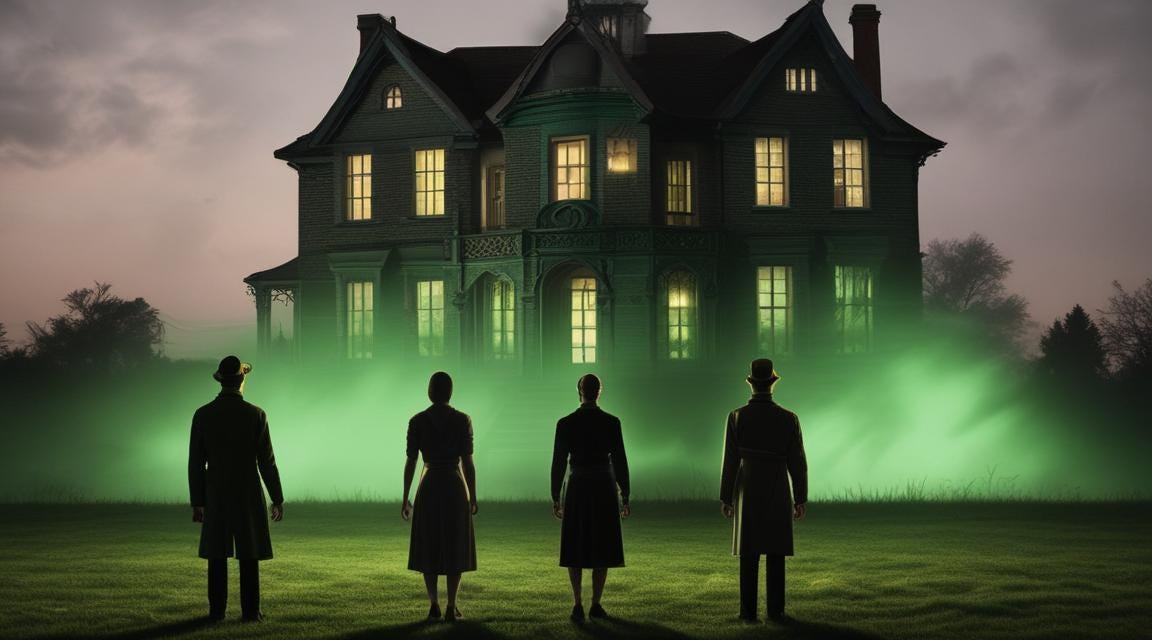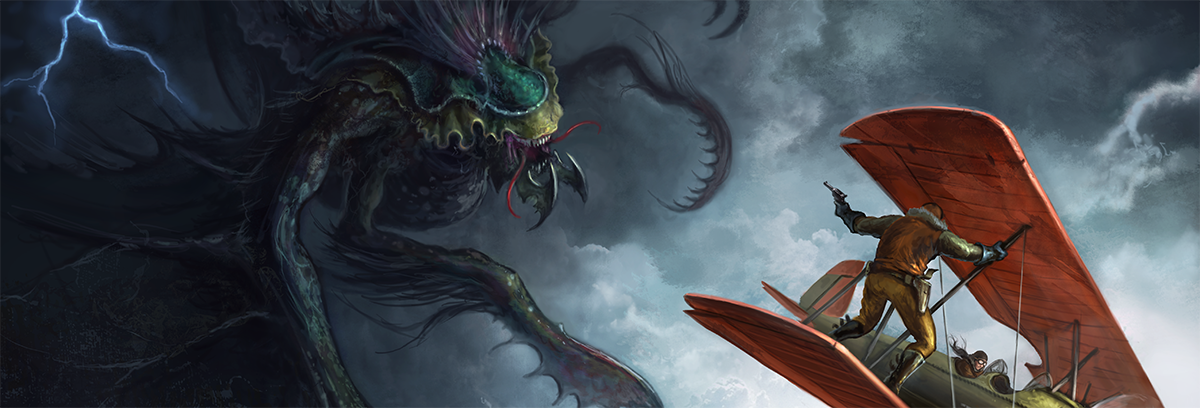Finding joy in the darkness: Call of Cthulhu RPG
The worlds, the outcomes, the horrors, but, above all, the fun.
Right, first things first, I know that Lovercraft is all manner of problematic. I know what his cat was called, I’ve read enough of his stories to be able to list the many groups of people he didn’t like very much, and he had a terrible haircut. However, this is not about Lovecraft’s writing, rather the TTRPG system that his world inspired.
There has been, over the last 15 years or so, an explosion in interest in table top role playing games (TTRPGs). This has been propelled by high quality and high profile actual plays such as Critical Role, pop-culture relevance through Stranger Things, and a growth of independent RPGs and Zines, like Spire or every single Mothership expansion. All of these have helped to breathe new life in to what had been an ailing genre.
Gone are the days when saying you played TTRPGs conjured stereotpyical images of the geek - with unwashed hair, spotty faces, thick glasses, all arguing over the interpretation of wording in the Players Handbook. Now, roleplayers are young, sexy geeks who regularly argue over the interpreation of wording in the players handbook. And long may this continue.
However, the vast majority of the TTRPGs content that is produced around them focuses on Dungeons and Dragons. This is no surprise; in many way DnD is the supremo Daddy of tabletop role playing. It’s a relatively simple system and builds a Tolkien-esque world that most everyone can relate to and image. More than that, it’s the system that has the most famous and most successful actual play podcasts and YouTube series going. Critical Role’s first episode has garnered over 23m views, the first of series two has over 20m, and the TV series is a rip-roaring success on Amazon Prime. Off the back of the culutral boom, Paramount Pictures and Hasbro released the 2023 film Dungeons & Dragons: Honor Among Thieves that drew $250m in box office returns.
And yet, for me, while I find Dungeons and Dragons to be a perfectly fun setting to explore with friends when I want to relax of an evening, nothing has come close to the joy I experience when I can dive into the world of Choasium’s Call of Cthulhu.
Call of Cthulhu (CoC) is, by all intents and purposes, not cool. It’s too close to ‘Classic Nerdery’ to become mainstream, and too much unlike DnD to dethrone the king of TTRPGs, and thus sits in this weird middle ground with other RPGs like Mothership.
And yet, whether I’m running a game (called Keeping rather than being a DM) or playing one, I can’t help but beam as the characters have utterly awful days. The time where I killed three characters off in a house-levelling gas explosion, or when my character went breifly insane and started skinning his face off, both really nasty events that made everyone at that table react, gasping or cheering or both.
By exploring the ‘darker’ side of mythos, with eldritch horrors, ancient magic cults, or even just men driven mad by their own passions, CoC sets a tone of paranoia and horror that can deliciously build over a session. This creeping tension brings with it a sense of dread and wonder, as your charactes find themselves getting more intwined with horrors often beyond their comprehension. And when that tension breaks?
Pure joy.
Horror games have a risk of being corny, with lots of forced ‘it jumps for your eyes’ or sudden death scenarios that often go nowhere or have no consequences, but CoC quite deftly solves this. The sanity mechanics are something to behold, and an incredible way to turn what can be stale horror TTRPGs into something so much more. As your character experiences things that are more an more out of the ordinary or other-worldly, they roll against their sanity. But as they fail, or if they see things that are too bizarre, this starts to decrease. Lose enoguh in one go and the character is subject to a bout of madness - say, sudden memory loss, developing a phobia, violent mania, etc., etc. - but if they lose more, they may well go indefinitely insane.
The opportunities for organic roleplaying, as well as interesting and engaged keeping, are endless. The possibilities for fun, chaos, and, oddly, whimsy, are unlimited. In my opinion, CoC is the pinacle of open-ended, yet still structured, TTRPG fun.
As with all things TTRPG, the success very much depends on who you’re playing with. I’ve sat through bad CoC sessions just as I’ve endured DnD sessions that felt like pulling teeth. But CoC seems to have a higher hit rate of good times, and the highs you can reach when you survive genuinely perilous times are unrivalled.
Just as DnD has it’s celebrities, CoC is no different. Actual play podcasts are sprouting up more commonly now, like zombies bursting through loose graveyard soil, but the shining beacon must by the multi-award winning The Apocalypse Players. With audio design that rivals BBC Radio, characterisations brought by the incredbily talented (and highly trained) cast, playing only the best of the published scenarios as well as homebrew games, it’s an absolute feast for the ears and that little bit of your brain that’s still scared of ghosts.
So, what am I actually trying to say in all of this? Simply put, go forth and play Call of Cthulhu. Who knows, maybe you’ll even live.


